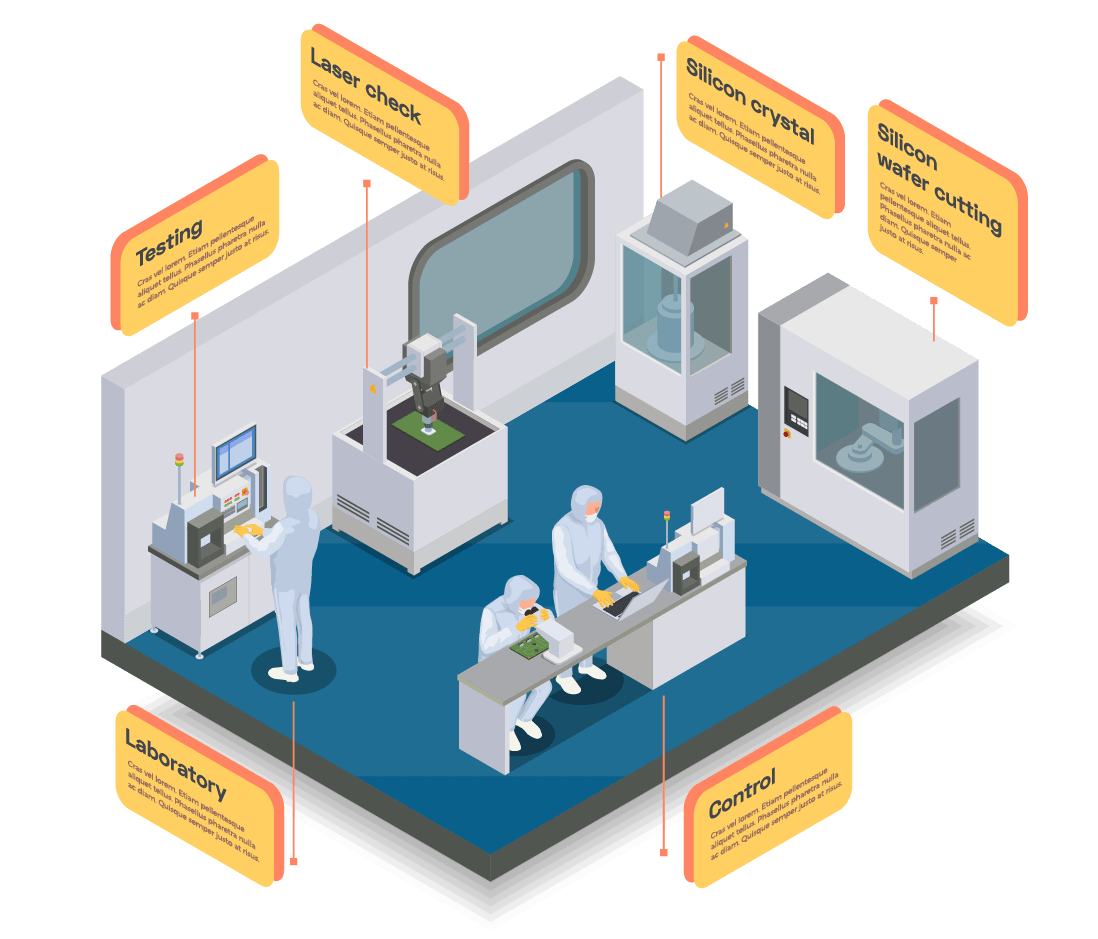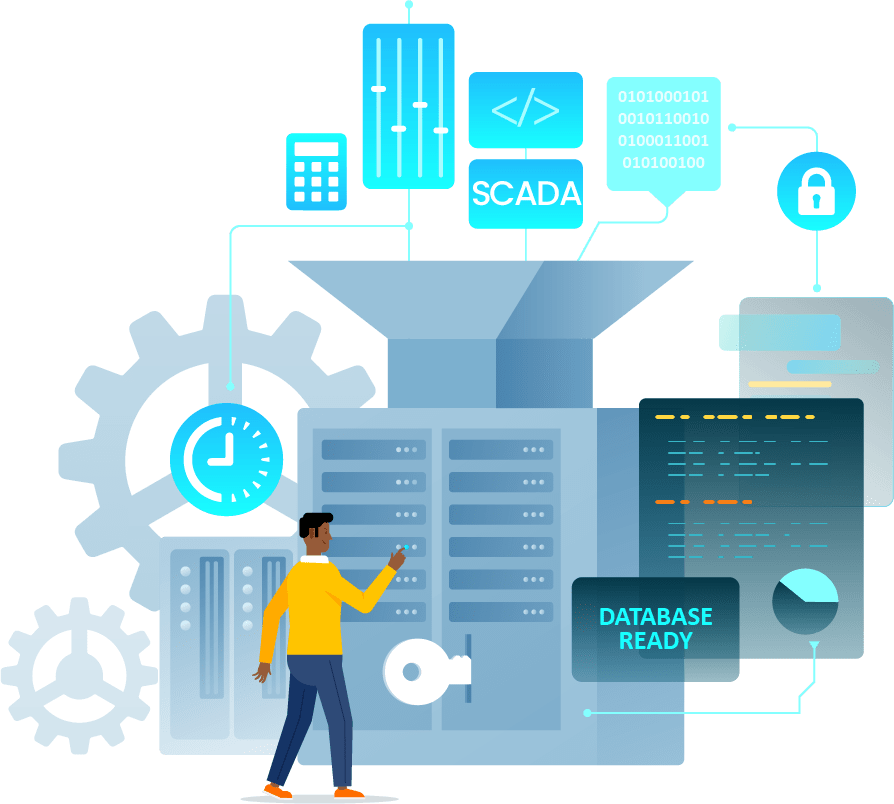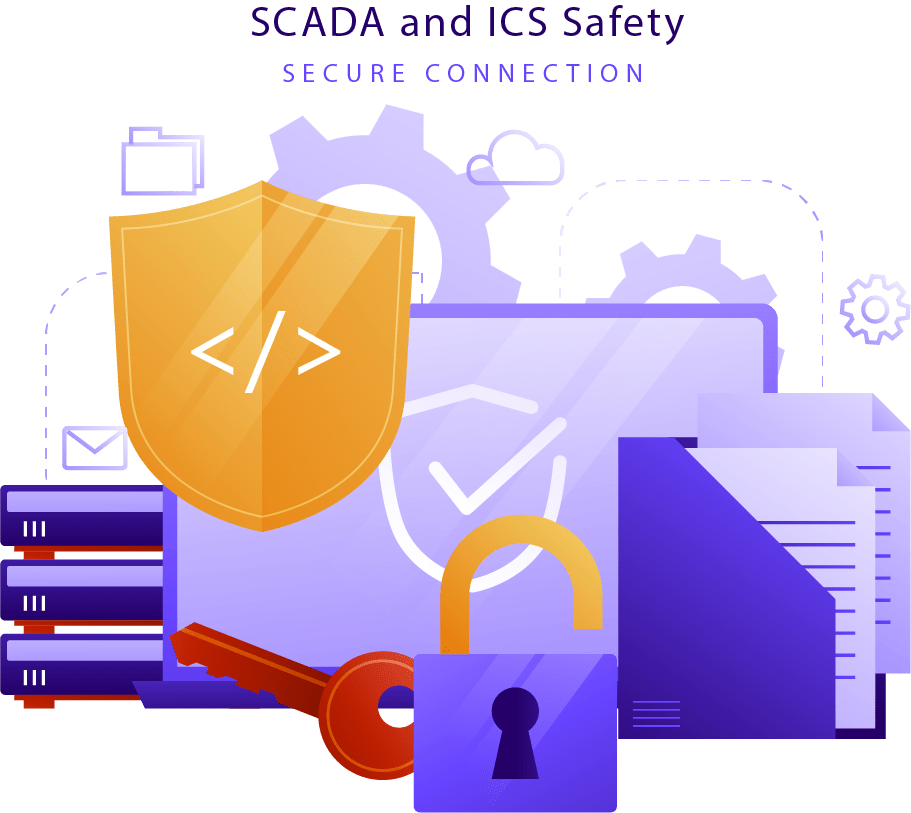Industrial Control Systems (ICS) and Supervisory Control and Data Acquisition (SCADA) systems are essential components of modern industrial operations. These systems are used to automate and manage various processes such as power generation, production, water treatment, transportation and much more. The reliance on these systems has increased due to their ability to provide real-time monitoring, control, and decision-making capabilities, but this has also made them targets for cyber attackers.
Challenges and threats to ICS/SCADA systems
The challenges and threats to Industrial Control Systems (ICS) and Supervisory Control and Data Acquisition (SCADA) systems are numerous and constantly evolving. These systems are critical for the smooth operation of many industrial processes and infrastructures, including power plants, water treatment facilities, and transportation systems. However, the increasing use of technology in these systems has made them vulnerable to cyber-attacks, which can result in significant consequences such as system downtime, loss of sensitive information, and even physical harm to individuals.
One of the biggest challenges facing ICS and SCADA systems is their reliance on outdated technology and hardware. These systems were not designed with cybersecurity in mind, which makes them more susceptible to attacks. Additionally, the lack of security updates and patches for these systems leaves them vulnerable to exploitation by malicious actors.
Another challenge is the interconnectedness of ICS and SCADA systems with other networks and systems. This interconnectedness increases the attack surface and creates opportunities for attackers to penetrate the systems and gain access to sensitive data and control functions. Furthermore, many of these systems are not properly segmented, which makes it easier for attackers to spread malware throughout the network.
Threat actors targeting ICS and SCADA systems include state-sponsored hackers, hacktivists, and criminal organizations. These actors are motivated by a variety of factors, including financial gain, political motives, and the desire to cause chaos and disruption. The increasing use of these systems in critical infrastructure makes them attractive targets for these actors, as successful attacks can result in significant harm.
In conclusion, the challenges and threats to ICS and SCADA systems are significant and require ongoing attention and effort to mitigate. It is essential that organizations take proactive measures to secure these systems and stay informed about the latest threats and vulnerabilities to ensure the protection of their critical infrastructure and data.
Industrial Control Systems (ICS) play a critical role in the automation and control of various industrial processes and infrastructures, including manufacturing, power generation, and transportation systems. These systems are designed to monitor and control various processes, machinery, and equipment, ensuring efficient and safe operation. ICS can be broadly classified into two main categories: Programmable Logic Controllers (PLCs) and Distributed Control Systems (DCSs).
Programmable Logic Controllers (PLCs) are used in manufacturing and process control applications, where they control and monitor production processes. PLCs are designed to be rugged and reliable, and are often located on the factory floor in harsh industrial environments. They are used to control a wide range of machinery, from simple devices such as conveyor belts to complex production lines.
Distributed Control Systems (DCSs) are used in large-scale process control applications, such as power plants, water treatment facilities, and oil refineries. DCSs are typically located in control rooms and are used to monitor and control processes in real-time. They consist of a central computer and a network of remote I/O devices that communicate with the computer to exchange process data and control signals.

Advantages of ICS and SCADA Systems

Industrial Control Systems (ICS) and Supervisory Control and Data Acquisition (SCADA) systems play a critical role in the automation and control of various industrial processes and infrastructure.
One of the main advantages of ICS and SCADA systems is improved process control and monitoring. ICS and SCADA Service systems allow real-time monitoring and control of processes, machinery, and equipment, enabling operators to quickly identify and resolve issues before they become major problems. This results in improved process performance, increased efficiency, and reduced downtime.
Another advantage of ICS and SCADA systems is increased safety. These systems allow for remote monitoring and control of potentially hazardous processes, reducing the risk of human injury. They also provide automatic safety shut-off features that can protect personnel and equipment in the event of a process malfunction or emergency.
ICS and SCADA Service systems also provide increased flexibility and scalability. They can be easily adapted to meet changing process requirements and can be expanded as the needs of the operation change. This makes them ideal for use in dynamic industrial environments where processes are constantly evolving.
Finally, ICS and SCADA Services systems can improve decision-making and provide valuable process data. By collecting and analyzing process data in real-time, these systems provide operators with the information they need to make informed decisions about process control and optimization.
Power Generation and Distribution: SCADA systems are used to monitor and control power generation and distribution processes, including power generation, transmission, and distribution. This helps to ensure that electricity is produced and distributed efficiently and safely.
Oil and Gas Production: SCADA systems are used to monitor and control oil and gas production processes, including drilling, production, transportation, and refining. This helps to improve efficiency and reduce downtime.
Water and Wastewater Treatment: SCADA systems are used to monitor and control water and wastewater treatment processes, including water intake, treatment, and discharge. This helps to ensure that water and wastewater are treated safely and efficiently.
Transportation Systems: SCADA systems are used to monitor and control transportation systems, including highways, railways, and airports. This helps to improve safety, reduce downtime, and ensure efficient operation.
Building Automation: SCADA systems are used to monitor and control building systems, including heating, ventilation, air conditioning, and lighting. This helps to improve efficiency, reduce downtime, and ensure that buildings are comfortable and safe for occupants.


SCADA (Supervisory Control and Data Acquisition) and ICS (Industrial Control Systems) are critical components of many industries, including manufacturing, energy, water, and transportation. These systems are used to control and monitor complex processes, from managing the flow of oil and gas to ensuring the safety of water supplies.
SCADA and ICS safety is of utmost importance, as these systems are designed to control critical infrastructure and processes. A security breach in these systems could result in physical damage to equipment, loss of life, environmental pollution, and even economic losses. For instance, in the year 2010, the Stuxnet virus was used to attack Iran’s nuclear program, causing significant damage to their centrifuges.
One of the key challenges in ensuring SCADA and ICS safety is their design. These systems are often developed with a focus on functionality and efficiency, with little regard for security.
To address these security concerns, it is crucial to implement a comprehensive security program for SCADA and ICS systems. This program should include a combination of technical, operational, and organizational measures to ensure the security of these systems.
Technical measures, such as firewalls, encryption, and access controls, can help to protect SCADA and ICS systems from external threats. Operational measures, such as regular software updates and backups, can help to maintain the security of these systems. Organizational measures, such as security training for personnel and incident response plans, can help to ensure that these systems are operated in a secure manner.
One of the main reasons why ICS and SCADA are required is to automate processes and reduce the risk of human error. By automating processes, ICS and SCADA systems can ensure that operations run smoothly, consistently, and safely. For example, in the energy sector, ICS and SCADA systems are used to control the flow of oil and gas, ensuring that these resources are transported and processed in a safe and efficient manner.
Another reason why ICS and SCADA are required is to improve the efficiency and effectiveness of processes. By providing real-time data and monitoring capabilities, ICS and SCADA systems enable organizations to quickly respond to changes in their operations and make data-driven decisions. For instance, in the manufacturing sector, ICS and SCADA systems can help organizations to optimize production processes, reducing waste and improving overall efficiency.
ICS and SCADA are also required to ensure the safety of critical infrastructure and processes. These systems are designed to monitor and control complex processes, including the flow of chemicals, water, and energy, ensuring that these processes operate safely and do not pose a risk to people or the environment. For example, in the water sector, ICS and SCADA systems are used to monitor and control the safety of water supplies, ensuring that these resources are safe for consumption.
Finally, ICS and SCADA systems are also critical components of modern communication networks, enabling organizations to share data and collaborate more effectively. By integrating ICS and SCADA systems with other IT systems, organizations can improve their ability to respond to changes in their operations and make informed decisions in real-time.


Expertise in Industrial Control Systems (ICS): At Securium Solutions, we specialize in safeguarding Industrial Control Systems. With deep knowledge of ICS architectures, protocols, and vulnerabilities, we are well-equipped to provide comprehensive security solutions.
SCADA Security Excellence: Our team understands the unique challenges faced by Supervisory Control and Data Acquisition (SCADA) systems. We offer tailored security measures to protect critical infrastructure, ensuring the uninterrupted operation of vital processes.
Advanced Threat Detection and Prevention: Securium Solutions employs cutting-edge technologies to detect and prevent advanced cyber threats targeting ICS and SCADA environments. Our sophisticated monitoring systems and proactive defense mechanisms enable us to identify and neutralize threats before they can cause damage.
Risk Assessment and Compliance: We conduct thorough risk assessments to identify vulnerabilities and develop robust security strategies. Our experts are well-versed in industry standards and regulations, ensuring compliance with relevant guidelines, such as NIST, IEC 62443, and ISO 27001.
Tailored Solutions for Various Industries: Recognizing the diversity of ICS and SCADA systems across industries, we provide customized solutions. Whether it’s energy, manufacturing, transportation, or any other sector, our team delivers tailored security measures to address specific needs.
Industrial Control Systems (ICS) refer to a type of system used in industrial processes to control and monitor various processes, including the flow of energy, water, and chemicals. These systems are designed to automate and optimize industrial processes, ensuring that they operate efficiently and safely.
Supervisory Control and Data Acquisition (SCADA) is a type of system used to monitor and control remote industrial processes and infrastructure. SCADA systems are designed to provide real-time data and control capabilities, enabling organizations to quickly respond to changes in their operations.
Industrial Control Systems (ICS) and SCADA are required to automate processes and reduce the risk of human error, improve the efficiency and effectiveness of processes, ensure the safety of critical infrastructure and processes, meet regulatory and industry standards, and enable organizations to share data and collaborate more effectively.
The benefits of using Industrial Control Systems (ICS) and SCADA include increased efficiency and safety, improved compliance with regulatory and industry standards, and enhanced communication and collaboration capabilities.
Industrial Control Systems (ICS) and SCADA can be integrated with other IT systems, such as Enterprise Resource Planning (ERP) and Manufacturing Execution Systems (MES), to provide organizations with a comprehensive view of their operations and enable real-time decision-making.
The security concerns associated with Industrial Control Systems (ICS) and SCADA include the risk of cyber-attacks, malware, and other security breaches, which could result in physical damage to equipment, loss of life, environmental pollution, and economic losses.
Organizations cannot rely solely on their existing security measures to protect their Industrial Control Systems (ICS) and SCADA, as these systems are often vulnerable to modern threats. To ensure the security of these systems, organizations must implement a comprehensive security program and engage in regular security assessments.